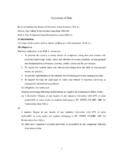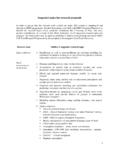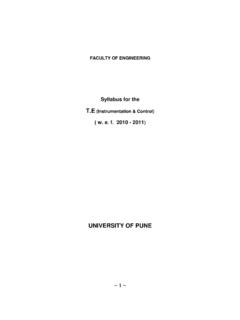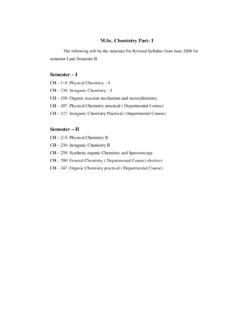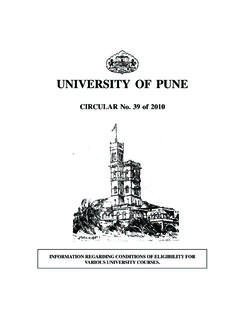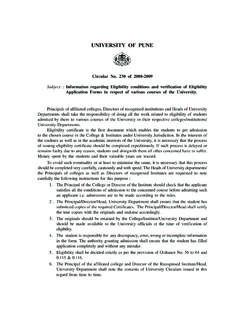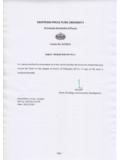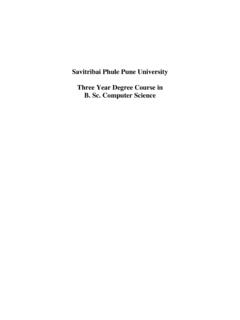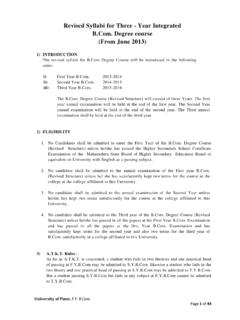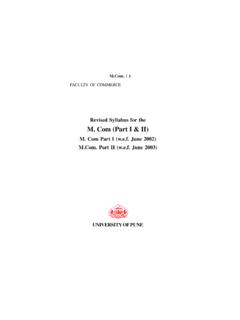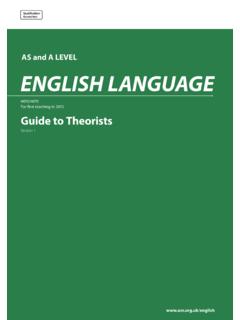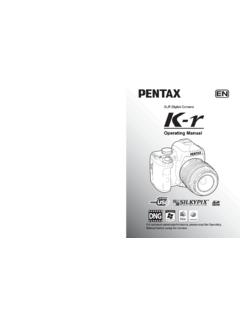Transcription of SAVITRIBAI PHULE PUNE UNIVERSITY
1 SAVITRIBAI PHULE pune UNIVERSITY Revised Course Structure of english T. Y. B. A. Compulsory english (w. e. f- 2015- 2016) (1) Objectives 1. To introduce students to the best uses of language in literature. 2. To familiarize students with the communicative power of english 3. To enable students to become competent users of english in real life situations 4. To expose students to varied cultural experiences through literature 5. To contribute to their overall personality development by improving their communicative and soft skills (2) Course Content Prescribed Text: Literary Pinnacles (Ed. Board of Editors, Orient Blackswan) Literature Components Prose Section: 1. Uncle Podger hangs a picture- Jerome K. Jerome 2. How Wealth Accumulates and Men Decay G. B Shaw 3. Retrieved Information/Jimmy Valentine Saki 4. How Much Land does a Man Need Leo Tolstoy 5. On the Rule of the Road Gardiner 6.
2 Pleasures of Ignorance Robert Lynd 7. The Selfish Giant Oscar Wilde 8. The Diamond Necklace Guy de Maupassant Poetry Section: 9. All the World is a Stage - William Shakespeare 10. La Belle Dame Sans Merci John Keats 11. Charge of the Light Brigade Alfred, Lord Tennyson 12. How Much Do I Love Thee Elizabeth Browning 13. Afterwards - Thomas Hardy 14. The Ballad of Father Gilligan W. B. Yeats 15. If - Rudyard Kipling 16. A Psalm of Life- Henry Wadsworth Longfellow Language Components 1. Transformation of Sentences : Declarative Sentences Interrogative Sentences Imperative Sentences Exclamatory Sentences 2. An Introduction to Communication Skills: Defining Communication The Process of Communication Verbal and Non-verbal Communication Tips for Effective Communication 2. Presentation skills: Kinds of Presentations Structuring Content Visual Aids The Language of Presentations Making a Presentation 4.
3 Introduction to Soft Skills : Leadership Skills Teamwork Skills Time Management Goal Setting Stress Management Positive Attitude Term-wise division of the syllabus: Term-I Literature components: - Prose Section: Unit 1 to 4 Poetry Section: Unit - 9 to 12 Language components:- Transformation of Sentences: Declarative Sentences Interrogative Sentences Imperative Sentences Exclamatory Sentences An Introduction to Communication Skills: Defining Communication The Process of Communication Verbal and Non-verbal Communication Tips for Effective Communication Term-II Literature components: - Prose Section: Unit 5 to 8 Poetry Section: Unit - 13 to 16 Language components:- Presentation skills: Kinds of Presentations Structuring Content Visual Aids The Language of Presentations Making a Presentation Introduction to Soft Skills : Leadership Skills Teamwork Skills Time Management Goal Setting Stress Management Positive Attitude Question Paper Pattern (Term-End Exam) Time: - Two Hours Total Marks: - 60 Q 1.
4 Attempt any One from (A) and One from (B) in about 100 words each (Questions on prose units 01 and 02) Marks 12 Q 2. Attempt any One from (A) and One from (B) in about 100 words each (Questions on prose units 03 and 04) Marks 12 Q 3. Attempt any One from (A) and One from (B) in about 100 words each (Questions on unit no 9, 10, 11, 12) Marks 12 Q 4. Reference to the context (any three) Marks 12 (Unit no 9, 10, 11, 12) Q5. A) Questions on Transformation of sentences (any 08 out of 10) Marks 08 B) A question on An Introduction to Communication Skills (01out of 02) Marks 04 (Questions should be modeled on the exercises given at the end of each unit of the prescribed textbook) Question Paper Pattern (Annual Exam) Time:- Three Hours Total Marks:- 80 Q 1. Attempt any One from (A) and One from (B) in about 150 words each (Questions on prose units 01 to 04- First term) Marks 16 Q 2.
5 Attempt any One from (A) and One from (B) in about 150 words each (Questions on poetry units 09 to 12- First term) Marks 16 Q. 3) Attempt any One from (A) and One from (B) in about 150 words each (Questions on prose unit no. 5 to 8 of the second term) Marks 16 Q. 4) Attempt any One from (A) and One from (B) in about 150 words each (Questions on poetry unit no. 13 to 16 of the second term) Marks 16 ) A question on Presentation Skills (1out of 2) Marks 08 B) A question on Introduction to Soft Skills (1out of 2) Marks 08 (Questions should be modeled on the exercises given at the end of each unit of the prescribed textbook) Revised Course Structure of english T. Y. B. A. General english (G-3) (w. e. f- 2015- 2016) Title of the Paper: Advanced Study of english Language and Literature (1) Objectives: a) To expose students to some of the best samples of Indian english Poetry b) To make the students see how Indian english poetry expresses the ethos and culture of India c) To make them understand creative uses of language in Indian english Poetry d) To introduce students to some advanced areas of language study d) To prepare students to go for detailed study and understanding of literature and language e) To develop integrated view about language and literature among the students 2) Course content: Prescribed Texts: 1) A Collection of Indian english Poetry (Ed.
6 Radha Mohan Singh, Orient Blackswan) 2) Linguistics: An Introduction-(Ed. Board of Editors, Orient Blackswan) (1) A Collection of Indian english Poetry Ed. Radha Mohan Singh (OBS) Following poems only: 1. Henry Derozio Song of the Hindustanee Minstrel 2. Rabindranath Tagore Silent Steps 3. Swami Vivekananda Peace 4. Sarojini Naidu Song of Radha, the Milkmaid 5. Nissim Ezekiel Poet, Lover, Birdwatcher 6. Kamala Das An Introduction 7. Ramanujan The Striders 8. Adil Jussawala Sea Breeze Bombay 9. Jayant Mahapatra The Captive Air of Chandipur-on-Sea 10. Arun Kolatkar The Bus 11. Agha Shahid Ali The Season of the Plains 12. Mamta Kalia - Tribute to Papa 2) Linguistics: An Introduction- (Ed. Board of Editors, Orient Blackswan Following topics from Chapter 5, 6 and 7 of the book) Syntax - 1. Concept of Phrase, Phrase structure rules/ types of Phrases: Noun phrase, Adjective phrase, Adverb phrase, Prepositional phrase and Verb phrase.
7 2. Concept of Clause, Parts of Clauses: Subjects and objects, complements and Adverbials, Concept of Subject verb Concord, Clause patterns. 3. Types of Sentences: Structural Classification - Simple Sentence, Compound Sentence and Complex sentence 4. Types of Sentences: Functional Classification - (affirmatives/interrogatives/imperatives ) Wh questions, Yes-No Questions, Tag Questions, Negative Sentences, Do-support, Imperatives Semantics (Introductory) 1. What is Semantics? Difference between Denotative and Connotative meaning. 2. Lexical relations: Synonymy, Antonymy, Homonymy, Homography and Homophony, Polysemy, Difference between Homonymy and Polysemy, Superordinate terms and Hyponymy, Metonymy. Pragmatics - (Introductory) 1. What is Pragmatics? 2. Speech Acts : Types a. Austin s typology - locutionary, illocutionary, perlocutionary. b. Searle s typology the six types c. Direct and Indirect Speech Acts 3.
8 The Co-operative Principle and Its Maxims 4. The Politeness Principle and Its Maxims Reference Books: 1. Aspects of Indian Writing in english ed. Naik, (Delhi: Macmillan, 1979) 2. Problems of Indian Creative Writer in english C. Paul Verghese, (Somaiya Publications : 1971) 3. Contemporary Indian Poetry in english : An Assessment and Selection ed. Saleem Peeradina (Bombay :Macmillan, 1972) 4. Indian poetry in english : A Critical Assessment eds. Shahane and M. Sivramkrishna (Delhi: Macmillan, 1980) 5 A History of Indian Literature in english -ed.
9 Arvind Krishna Mehrotra, (New York: Columbia UNIVERSITY Press, 2003) 6. Study of Language: An Introduction George Yule, (CUP, 1985) 7. english Grammar for Today: A New Introduction Margaret Deuchar, Geoffrey Leech, Robert Hoogenraad (Palgrave Macmillan, 1982) 8. Semantics Palmer (CUP, 1981) 9. Pragmatics - George Yule, (OUP, 2000) 10. Modern Linguistics: An Introduction - Verma and Krishnaswamy (OUP, 1989) 11. Pragmatics and Discourse: A Resource Book for Students - Joan Cutting, (Routledge, 2002) 12.
10 Structure and Meaning in english Graeme Kennedy (Pearson, 2011) 13. Making Sense of english : A Textbook of Sounds, Words and Grammar Yadugiri (New Delhi: Viva Books Pvt. Ltd., 2006) Term-wise division of the syllabus: Term-I 1. Poems from- A Collection of Indian english Poetry: 01 to 06 2. Syntax part from- Linguistics: An Introduction Term-II 1. Poems from- A Collection of Indian english Poetry: 07 to 12 2. Semantics part from- Linguistics: An Introduction 3. Pragmatics part from- Linguistics: An Introduction Question Paper Pattern (Term-End Exam) Time: Two Hours Total Marks: 60 Q. 1) Attempt any 2 out of 4 questions in about 100 words each (Questions on the poems 1, 2, 3, 4 prescribed for the First term) Marks 12 Q. 2) Attempt any 2 out of 4 questions in about 100 words each (Questions on the poems 5, 6, 7, 8 prescribed for the First term) Marks 12 Q.
